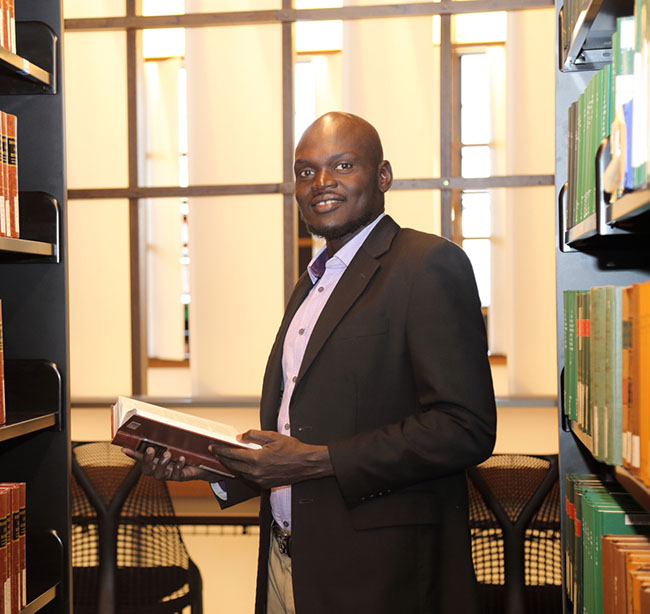 Mark Deng has joined the UQ School of Law as a PhD student on an Australian Postgraduate Award. After spending four years in a Kenyan refugee camp, Mark arrived in Australia as a teenage refugee from South Sudan. Earning his LLB from James Cook University, he then completed a Master of Laws from The University of Queensland.
Mark Deng has joined the UQ School of Law as a PhD student on an Australian Postgraduate Award. After spending four years in a Kenyan refugee camp, Mark arrived in Australia as a teenage refugee from South Sudan. Earning his LLB from James Cook University, he then completed a Master of Laws from The University of Queensland.
This year, Mark received a scholarship to undertake a PhD on democratisation in post-conflict countries, in response to his home country’s difficult birth.
In 2011, the east-African country of South Sudan was the world’s newest nation. However, it is now at risk from a repressive, centralised government. Mark recently published on the problem of excessive presidential power in his country, and how this is stifling the establishment of democracy. As of 2016, South Sudan has suffered ethnic violence, a civil war which has caused up to 300,000 casualties, and the Fragile States Index now ranks it the second most likely nation to collapse.
South Sudan’s problems demonstrate the importance of getting the founding constitution correct. The transitional constitution – written by inexperienced lawyers hand-picked by the incumbent government (and without public input), contains broad provisions allowing for the president to dismiss the elected state governor and appoint a new one of their choosing. Power has become concentrated in the executive and citizens’ votes have been overruled. That which we take for granted in Australia – free elections, checks and balances, and the rule of law – are denied to the South Sudanese.
Mark is passionate about South Sudan and wants to help it transition to true democracy. Asked about his reasons for choosing UQ to pursue this important topic, Mark said “I chose UQ for three main reasons. First, UQ has an international reputation in research and academic excellence. There is always an advantage in graduating from a top university, particularly when making the transition to the job market.
“Second, UQ is my alma mater and my previous UQ public law lecturers, particularly Professor Suri Ratnapala and Professor Jonathan Crowe inspired my interest in constitutional law. It was Professor Crowe who introduced me to my current supervisors, Dr Caitlin Goss and Professor Graeme Orr. And third, I find the sandstone buildings at UQ and the environment generally quite fascinating and inspiring. I love jogging around the UQ river.”
Mark is supervised by Dr Caitlin Goss and Professor Graeme Orr. Dr Goss works in the field of comparative constitutional law, and completed her doctoral research on interim constitutions at the University of Oxford.
“Mark’s research will make an important contribution to our understanding of constitutional law in South Sudan. In South Sudan, a liberationist movement has become a government, and it has failed to democratise and provide the accountability and transparency that many hoped for in the transitional period. There has been very little scholarship on the constitutional situation in South Sudan, and with his academic background and personal knowledge of the region, Mark will be in a position to provide vital analysis on the possibility for reform and democratisation in the world’s youngest state.”



